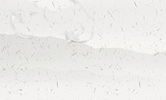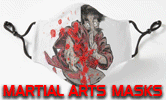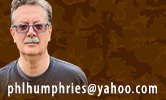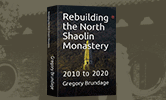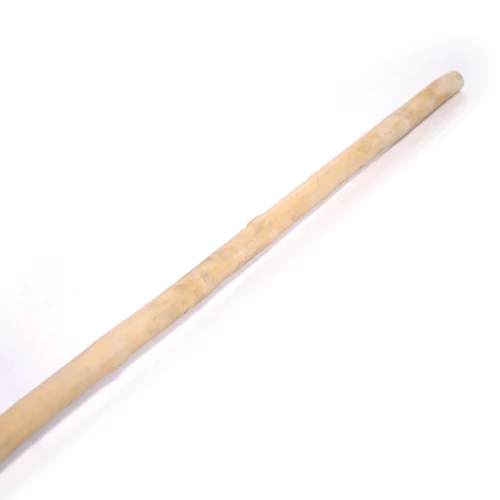Eric Lee
By Annabelle A. Udo
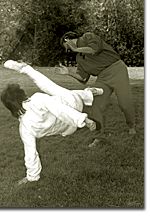 On martial arts, media, and essentially maintaining a peace of mind
On martial arts, media, and essentially maintaining a peace of mindEric Lee's character carries the design of a newly-spun spider web- intricate, yet organized - serene, yet, strong in thought. He seems to always be in full fight-researching new dimensions that keep him in control of his mind and as well as his martial arts. "The King of Kata," he has been called, essentially because of his lengthy roaster of awards won in the late '60s through the early '70s (including Black Belt Hall of Fame, Kung Fu Artist of the Year). His voice has the tonality of balance and the versions he materializes are moved by Life itself. " I like to be creative and I's constantly making things happen, "Lee says drawing a figure 8 in the air with is hand, "Life is a real long process and it's supposed to be a pleasurable thing. Learn more, grow more, experience more - that's what it's all about. It's very simple. "Today, lee progresses at 690 miles per hour - in full force combining his martial arts with being a film producer/actor ("Ring of Fire" Parts 1 & 2, "Talons of the Eagle"). In addition, he is the author of four books, "Fight Back," "The Broad Sword,""Three Section Long Staff," and "Championship Kata." Having tudied with Al Cacascos (known for Won Hop Kuen Do) among many others, Lee currently studies Qigong with Sifu Zhou Ting Ju and Dr. Hua Huang.
Kung Fu: Tell me about your martial arts background.
Eric Lee: I started when I was very little. My father did Choi Li Fut Style and Qigong. He's still doing Qigong. That's all he does. So he was my first influence, but I didn't really learn that much from him. I was very little. My first experience in any martial arts was when my father and my mom took me to see a Chinese opera in China when I was there...
KFM: What was that about?
E.L.: It's like Chinese opera where they use weapons. Stage Opera Kung-Fu. I went to Hong Kong later on when I was still very little. Maybe about six year old and watching all these black and white Kung Fu movies in the '50s. As a matter of fact, the legendary Kung Fu star, if he's still living, ,is probably in San Francisco - probably over 100 years old now. Anyway, I came to the United States in 1960-61 the same year Bruce Lee came by. From then on, I picked up something here and there and not until the mid-'60s was I interested in all kinds of styles. In late '60s, I studied a little Shao Lin, a little Wing Chung, I was putting in 70 hours a week just training. Later on, I was studying some traditional styles, but I was only learning formal weapons. During that time, I remember being beat up by one of the big bullies at school, I guess I was in the 10th grade of 11th grade. He was the biggest kid and he just picked on anybody. I was small and I got chopped in the neck. He'd say "Eric, look up at the sky." Then, boom! He'd chop me right in the neck. So, that made me want to learn self-defense first. Then I went to strictly searching and searching and searching and learning and learning a lot of self-defense. I learned from Sifu Al Dacascos (know for Won Hop Kuen Do) and I was learning some Wing Chung techniques where I learned how to throw, like Judo. There were people with back belts in the school that we shared and so I learned how to do everything. I went to comp0s and I retired in '73 having won a lot of trophies. I had my fun, it was a good spirit, a good high for me doing martial arts.
KFM: You mentioned this "bully" that perhaps had, at one point, an impact of why you went into martial arts. Has there ever been a time after you've established yourself as a martial artist that you had to defend yourself?
E.L.: Yes, several times. I learned that right away. I've been looking for that guy ever since. Not to beat him up but to thank him for giving me the motivation. I'm the type of guy that if I get insulted or somebody tells me that I can't do something within reason, I prove to him that might be wrong so that gives me a lot of motivation. But, now I'm much more balanced. Before, when I was in competition, I was all driven, you know, just wanted to be at the top.
KFM: What is your belief as a martial artist?
E.L.: I believe in power, speed and training and I believe, especially when you're small, you have to close the gap faster within seconds. I have to move very, very quickly so I really try to develop my skill - trying to get fast and hit hard because I'm little. So I use the same speed and power and transform that into my form. Somebody told me once that "Kung Fu is really weak and there's no power." They don't see the internal strength like Tai Chi. I had had to prove that you use a lot of power. When somebody saw a television series - a lot of them - there wasn't a lot of power because the choreography is sometimes done in slow motion. A lot of them are martial artiest, and some of them are actors so they don't really put a lot of power into it and besides in a film you don't have to put a lot of power into it because choreography is just for looks. I'm a filmmaker myself and I choreograph and I write scripts so I know what it's all about. But, in competition you have to show power especially the external form. So, I went in and just put a lot of power into it and proved that we do have power. Now, I'm surpassed my own state. I'm dealing with the internal - my mind, my body and my heart.
KFM: Are you working on anything right now?
E.L.: I 'm working on a total Eric Lee martial arts library. At least 65 instructional tapes on my own which I produce on my own. Second thing is I'm doing audio tapes which will enhance people's lives. These are audio tapes about how to turn your hate into something you love and how to get motivated. A lot of people think abut how to get things going - they're thinking about it. But, they can't just think about it. It's how to get off your butt and make something happen. So, first of all, you have to have health in that area. Not only for martial artists, this is for the general public, we all have to find ourselves, unless we know ourselves, than we have to know what to do next, you have to know yourself. You have to commit yourself and then you take action and then you can accomplish what you want accomplished whether it's a spiritual thing, or a physical or martial thing. And the other is how to release stress and spend five percent of the time on what the problem is and 95 percent of the time solving the problem A lot of people don't know how to move, they're just stagnant. It's like Qi stuck in the body - always feeling the pain - you've got to get rid of that. The lack of focus, the lack of direction - a lot of people need help, so I'm putting a tape on all aspects of life. Just like a combination of eastern way of thinking and western way of doing, so it's a very balanced thing. That's one of my gifts that I think I have a lot in that area to give to the public.
KFM: How was the martial arts industry in the '70s?
E.L.: The movies were very popular - David Carradine, Bruce Lee. In those days, there were very few Kung-Fu type practitioners and there were no Kung-Fu tournaments at all. I had to compete at hostile tournaments like Texas, Oklahoma, so they were very prejudice about Kung-Fu stylists at this time. So sometimes when I first begin my career, even at my best, they gave me the lowest score. Right now, it's all widely recognized. Now, I'm working more on the internal for myself - Qigong. I learned a lot of great philosophies from many different masters and teachers taught me a lot of stuff as a way of life and I feel the physical aspect of it is great but you also have to know how to balance the mind, the body and your spirit, so I'm more into wisdom. So I surpassed all this. I'm really happy to see all these things happy to see these things happening, like the tournament, all the top national champions, the fighters, and kata champions alike.
KFM: What do you think of the whole Hollywood trip of martial arts in film?
E.L.: You have to understand that this is Hollywood - to make films, to make a storyline. The film producers, some of them they want to make money. But the action movie which you are basically talking about is a thrill for the martial arts people. They want to see the action, the good choreography; they want to see the nice-looking bodies, the good-looking ladies.
KFM: So you have something coming out on Showtime and HBO?
E.L.: "Ring of Fire, Part 1" was on television and they played that six months ago for six months. "Ring of fire 2" will be on in November or December. Also, another one, called "Talons of the Eagles," and also, "Misfit Patrol" in which I play comedy. I produced another movie called "Master Demon" which will soon be released. It's a horror/action movie. I have a couple of stories that I've written as an action/comedy. It's a "laugh-to-death" comedy all the way. Nothing serious. It's very action-oriented, yet very funny.
KFM: What's "Ring of Fire" about?
E.L.: Part 1 is very similar to "West Side Story" but it's about an Asian gang versus an American gang and later on in the end, one of the systems gets hurt and they make peace at the end. I playa character who is always goofing off, you know, like Eddie Murphy. Jackie Chan, but I have my own character that I develop. It seems to be working really well. In "Ring of Fire 2," the same gang comes together and a woman in the movie gets kidnapped by the bad guys. We join them again by trying to solve the problem and getting her back.
KFM: So how are you as a comedian?
E.L.: I don't do stand-up comedy. The only reason why I like comedy is because it relaxes people, it relaxes me, and every time you laugh your body sends off endorphins that last for 45 minutes. So, it relaxes you. When you relax, you Qi flows, when your Qi flows, you're relaxed. So you don't have blockage - that means you have energy - you feel better, you live longer. I always seem to promote parties and luaus, cracking jokes with friends and having a good time. It's not very good to take too many things seriously, it'll block up your Qi. So, if I can make a living out of something I enjoy that's the ultimate.
KFM: So where are you living now?
E.L.: I 'm still living in Woodland Hills, CA.
KFM: What are some of your other philosophies?
E.L.: I like to make thinks simple now that I've gone through the whole cycle, you know, seeing the Hollywood sides, a lot of martial arts travel and meeting tons of people around the world. You just have to have harmony with yourself first, know who you are, and know what makes you feel happy internally. This (pointing to his center) doesn't go away, it stays here so you have to be happy with yourself whatever makes you happy. For people into the internal arts, they know that, I think the most important thing is the mind. Because mind and body are the same. Mind, body, and spirit are al related. It's all one piece. If you don't take care of your body, your body goes first.
KFM: Are you teaching right now?
E.L.: I'm not currently running a school right now but I do conduct seminars. So, people seriously interested in a seminar can write to me (see end of story for address). I do occasionally do demonstrations; in the future I'll be doing more seminars not just on martial arts. I'll be having an infomercial, that will just share my philosophies.
KFM: In general, how do you think martial arts has changed?
E.L.: This time around is to get a deeper understanding because there seems to be more teachers out there now. Since the '70s, people have studied martial arts and now there are more teachers throughout the U.S. I understand there are 5 million teachers in the U.S. alone. I think that's even an underestimation. The more systems available the more teachers are coming out of the woodwork. I think the level of the competition is getting better - I/m talking about the variety to choose from. There's more awareness on the internal system. In the '70s when there wasn't a lot of focus on martial arts, people didn't understand martial arts as much. "Oh, you're one of those guys who can kick that guy's butt.." That was the kind of attitude. Now it's "What kind of system, do you do?" Now, it's martial arts including the philosophies, the healing arts, the personal growth how you relate it to the universe, the balancing, herbal medicine, the pressure points... all these things. Before, in the old days, they didn't know that the mind and body were so closely related - the mind and the body is, to me ONE. We became who we are because of the way we think. People sometimes put outside goals, some others are more focused on the internal aspects of the arts. Much is coming to a higher awareness, in general, at least, in what I've seen. That's only my opinion. A lot of people are interested in the inner part - if you only practice the gong, you have to balance the part on the inside. That way you keep the body functioning. It's more relaxed, more aware and much more in harmony.
KFM: Anything else?
E.L.: I love to be creative - making time for everything - time for preparation, to work, to be creative, to relax, to have fun, time to think, time not to think, time to be creative, time to be still. Even when we're inactive we are doing a lot inside. Physical exercise keeps our body strong. The internal part keeps our mind quiet and our hearts still.
Click here for Feature Articles from this issue and others published in
1993 .
Written by Annabelle A. Udo for KUNGFUMAGAZINE.COM
![]() Print Friendly Version of This Article
Print Friendly Version of This Article

